The purpose is to introduce a poetic and musical aspect of a dynamic and affectionate city.
The 530-page book introduces poems by more than 60 authors, songs set to poetry by musicians, and stories surrounding the relationship between poetry and music. The editorial team limited the priority criteria to gather poems set to music by authors living in Ho Chi Minh City or writing directly about Ho Chi Minh City.
Half a century journey of poetry and music
Taking the milestone of the song "Song from the city named after Him" composed by musician Cao Viet Bach with Dang Trung's poem, which was released right after the country was unified, the book reconstructs the journey of half a century of poetry set to music in the diverse and rich urban life of the South.
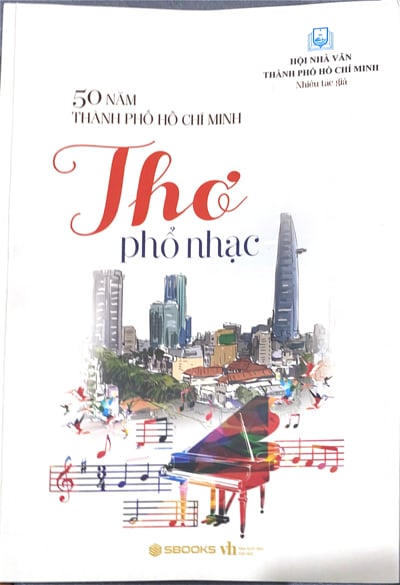
Cover of the book "Poetry set to music 50 Ho Chi Minh City" (Photo: HO CHI MINH CITY WRITERS ASSOCIATION)
Standing out in the poetry and music collection are famous poets and musicians whose works have timeless vitality. Typical examples include musician Pham Minh Tuan with the songs "Country" (poem by Ta Huu Yen), "Footprints in the Front" (poem by Ho Thi Ca), "Bac's Kissing Hands" (poem by Doan Vi Thuong), "City of Love and Nostalgia" (poem by Nguyen Nhat Anh); Nguyen Van Ty with "Mysterious" (poem by Bao Dinh Giang); Hoang Hiep with "Visiting Uncle Ho's Mausoleum" (poem by Vien Phuong), "I'm Still Waiting for You to Come Back" (poem by Le Giang), "Losing" (poem by Thanh Nguyen); Xuan Hong with "Spring by the Window" (poem by Song Hao); Phan Huynh Dieu with "Love Poem at the End of Autumn", "Boat and Sea" (poem by Xuan Quynh); Pham Tuyen with "Thirty-six Street Threads" (poem by Tran Quoc Toan); Phu Quang with "Em oi Ha Noi pho" (poem by Phan Vu), "Chieu phu Tay Ho" (poem by Thai Thang Long), "Nostalgia for Winter" (poem by Thao Phuong), "Catinat ca phe sang" (poem by P. N. Thuong Doan), "Time Inn" (poem by Truong Nam Huong), "Silent Night of Hanoi" (poem by Pham Thi Ngoc Lien); Phan Nhan with "Dad's Garden" (poem by Nguyen Duy); Truong Tuyet Mai with "Hue, My Love" (poem by Do Thi Thanh Binh)...
Speak for the heart
Poet Ho Thi Ca recounts the story of how he composed the poem "Footprints Ahead" about the 21-year-old boy Nguyen Ai Quoc at Ben Nha Rong years ago, about his concerns.
Musician Pham Minh Tuan confided: "The chance encounter with the poem "Front Footprints" helped me express the feelings not only of the musician but also of the Vietnamese people for the beloved leader."
Talking about the poem "Visiting Uncle Ho's Mausoleum" by poet Vien Phuong, musician Hoang Hiep said: "Musical compositions need to have highlights to impress the audience. "Ma sao nghe trong tim" is such an impressive verse. The whole poem's sentiment is nostalgia, the sad, sorrowful tone of the author visiting Uncle Ho. Sad but not pathetic, sorrow has turned into action like that."
Poet Le Tu Le wrote "Memories of a White Night in Vinh Loc Fields" in the epic poem "Aspirational City", expressing his feelings about the sacrifice of 32 laborers of Vinh Loc commune during the General Offensive and Uprising in the Spring of Mau Than 1968. Musician Pham Hoang Long said: "The tragic quality of the poem captivated me. I wrote the music for the play "Fiery Fields" but "Memories of a White Night in Vinh Loc Fields" became an independent song, sung to commemorate, to remember a time."
The book also reveals many interesting details. Journalist - poet Dang Trung wrote emotional verses in May 1975, but because the newspaper had not yet published them, he passed them on to musician Cao Viet Bach, from which the song "Songs from the city named after Him" was born. The poet wrote "Ho Chi Minh City shining brightly with the future" when Saigon had not yet been named after Uncle Ho, but he relied on the verse "Who goes to Ho Chi Minh City shining with the golden name" in the poem "We go to" by To Huu and that became true, becoming the title of the song full of proud emotions.
Songs from the heroic and romantic months of fighting are also present in the book when the poems were published after 1975, such as the poems of poet Hoai Vu. For a decade (1965-1975), the waves of Vam Co Dong sank into Hoai Vu's poetry, and the winds of Vam Co Tay also blew into Hoai Vu's poetry. Musician Thuan Yen composed his two immortal songs "Di trong huong tram" and "Chia tay hoang hon".
A time of heroic and enthusiastic youth volunteers
Over the past 50 years, the time when youth volunteers participated in fighting and serving on the battlefield in the Southwest front and built farms and new economic zones has left a deep mark, forming poems and music that move people's hearts.
According to poet Nguyen Nhat Anh: "In 1979, the Southwestern border war broke out, many young people in the city went to defend the Fatherland. Many of my Youth Volunteers fought side by side with army units to build bridges, carry the wounded, and carry ammunition. The poem "City of Love and Nostalgia" was born in that context. The inspiration for our generation of writers at that time was civic emotions, closely linked to the changes of the times, with burning patriotism". Musician Pham Minh Tuan acknowledged: "The poetic meaning made me deeply feel the nostalgia of the children of the city. It was from this that gave me the emotion to compose almost complete poems with a melody full of longing".
Poet Do Trung Quan wrote "Flowers on the Fire Line" which was set to music by musician Nguyen Cuu Dung. The poetry and music depict the eternal beauty of female Youth Volunteers - the flowers on the fire line with sincere emotions. When participating in the construction of a farm in Duyen Hai (now Can Gio district), Youth Volunteer poet Nam Thien (Mr. Van Chien) wrote the poem "Love confession on Ong Den island" (Mr. Den was the nickname of the Director of Do Hoa Farm, Mr. Phan Tan Lan at that time). "From the beautiful lyrical verses, I have created the melody and rhythm of a love song for Youth Volunteers" - musician Truong Quang Luc said.
Improvisation
Poet Thai Thang Long recounted the circumstances of the birth of the poem "Chieu phu Tay Ho" at the end of 1993. It was late afternoon, the weather was cold, the girls going to the temple wearing red and yellow dresses made him think of the Holy Mother, imagining the mandarin Bung Phung Khac Khoan rowing a boat to invite the Holy Mother to drink wine. The surging emotions helped him compose the poem and it was set to music by musician Phu Quang. "5 days later, at the recording studio, singer Le Dung was there, all three of them heard it again and had a strange feeling. Phu Quang shed tears" - poet Thai Thang Long recalled...
Source: https://nld.com.vn/tho-pho-nhac-50-nam-tp-hcm-nhung-cau-chuyen-sau-dam-an-tinh-196250410215142387.htm


![[Photo] Prime Minister Pham Minh Chinh and Ethiopian Prime Minister visit Tran Quoc Pagoda](https://vstatic.vietnam.vn/vietnam/resource/IMAGE/2025/4/17/18ba6e1e73f94a618f5b5e9c1bd364a8)
![[Photo] President Luong Cuong receives Kenyan Defense Minister Soipan Tuya](https://vstatic.vietnam.vn/vietnam/resource/IMAGE/2025/4/17/0e7a5185e8144d73af91e67e03567f41)
![[Photo] President Luong Cuong receives Lao Prime Minister Sonexay Siphandone](https://vstatic.vietnam.vn/vietnam/resource/IMAGE/2025/4/17/337e313bae4b4961890fdf834d3fcdd5)
![[Photo] General Secretary To Lam attends conference to meet voters in Hanoi city](https://vstatic.vietnam.vn/vietnam/resource/IMAGE/2025/4/17/889ce3da77e04ccdb753878da71ded24)
![[Photo] President Luong Cuong receives UN Deputy Secretary General Amina J.Mohammed](https://vstatic.vietnam.vn/vietnam/resource/IMAGE/2025/4/17/72781800ee294eeb8df59db53e80159f)
![[Photo] Hundred-year-old pine trees – an attractive destination for tourists in Gia Lai](https://vstatic.vietnam.vn/vietnam/resource/IMAGE/2025/4/17/25a0b7b629294f3f89350e263863d6a3)


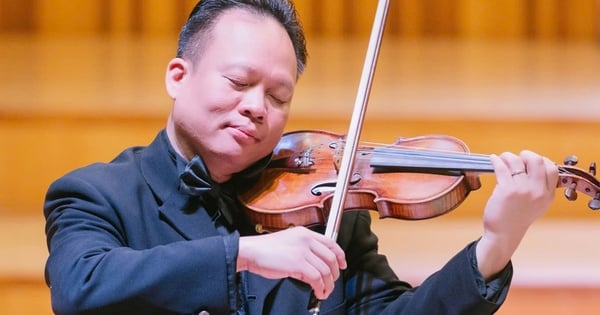

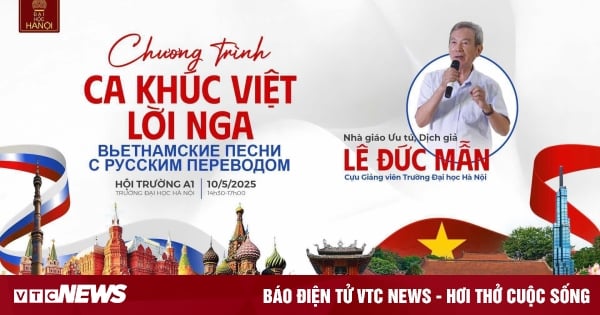






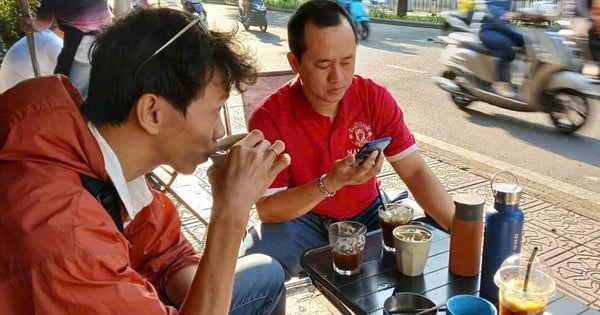
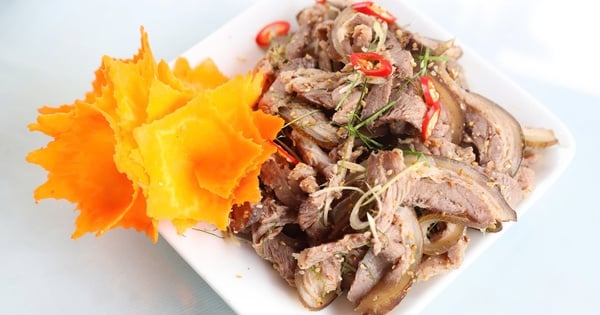
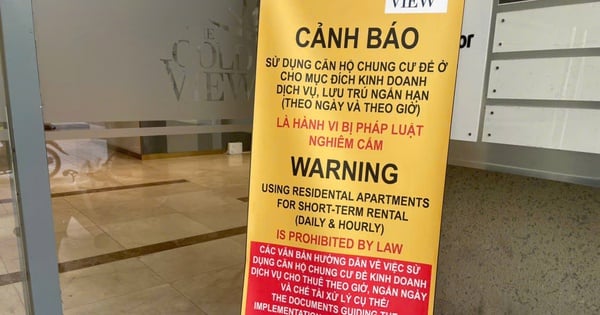

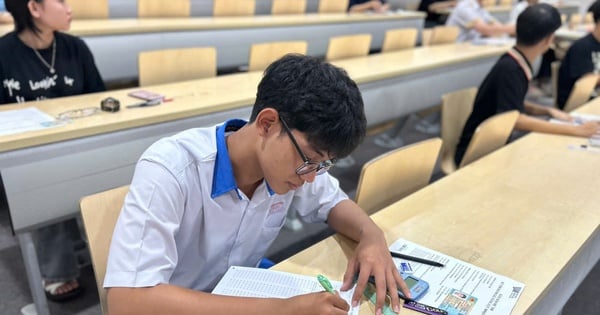








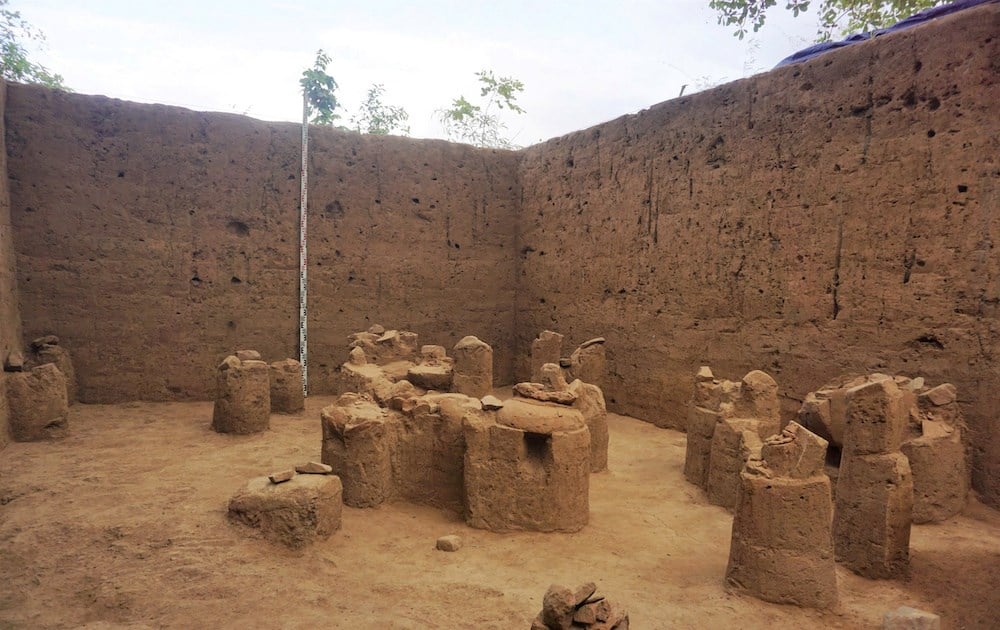









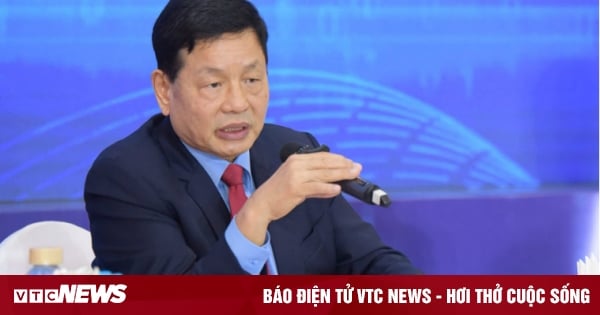





![[Video] Viettel officially puts into operation the largest submarine optical cable line in Vietnam](https://vstatic.vietnam.vn/vietnam/resource/IMAGE/2025/4/17/f19008c6010c4a538cc422cb791ca0a1)
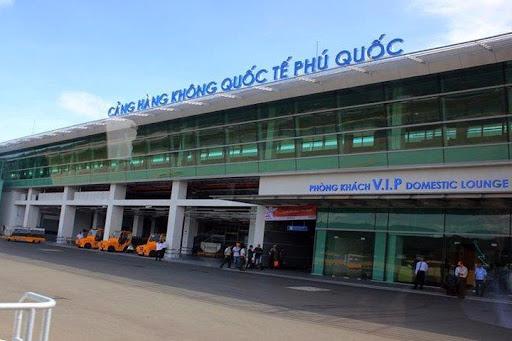



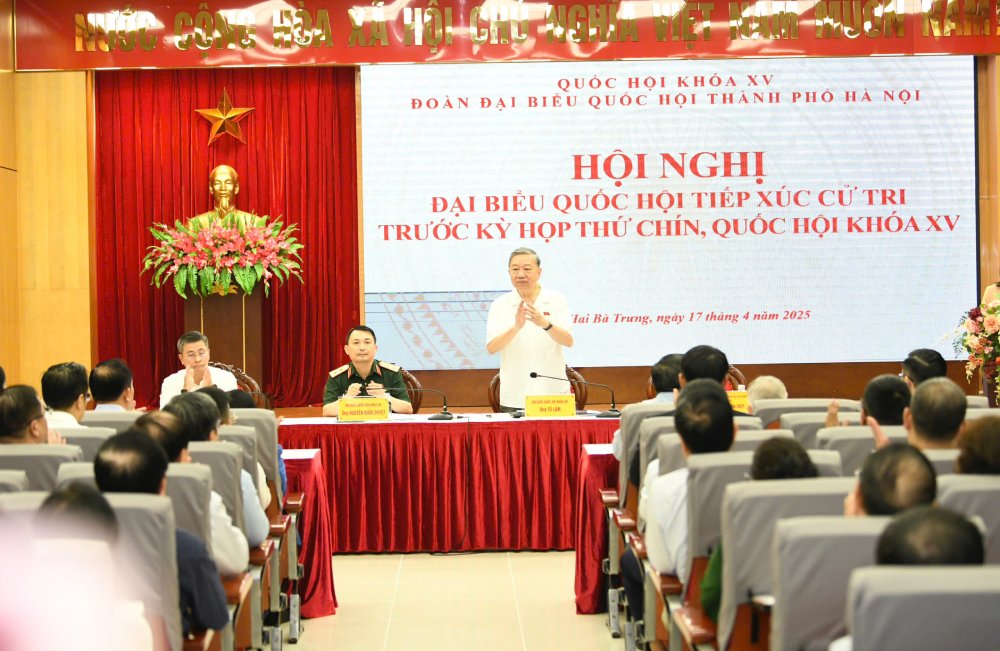

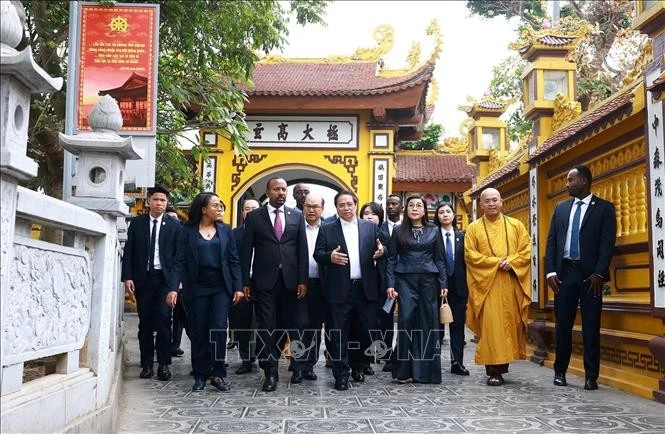

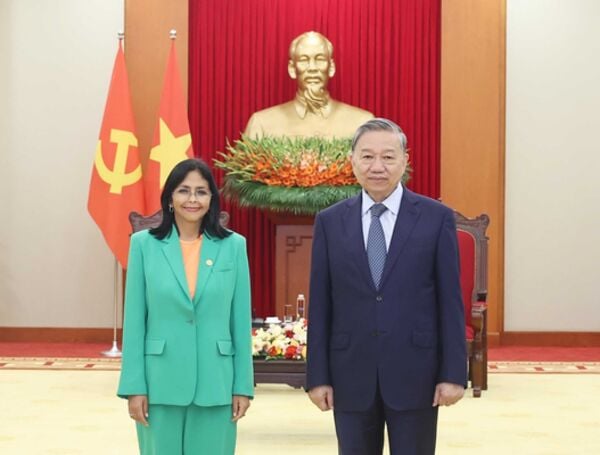
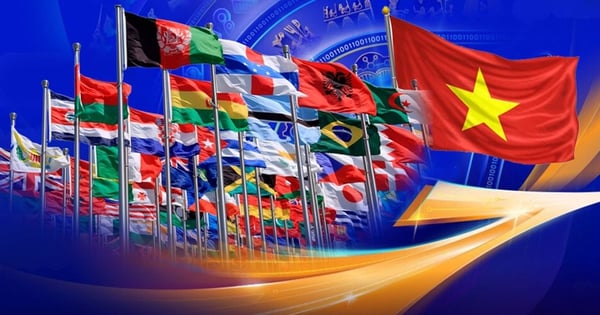
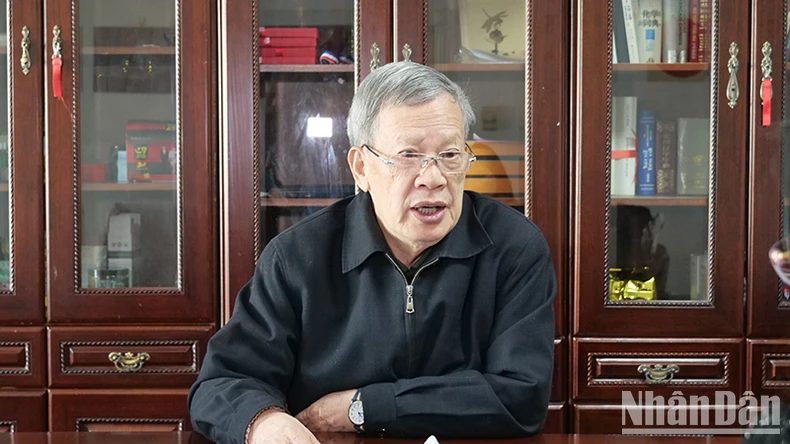

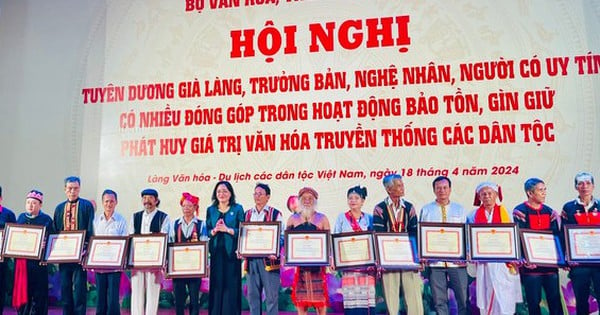

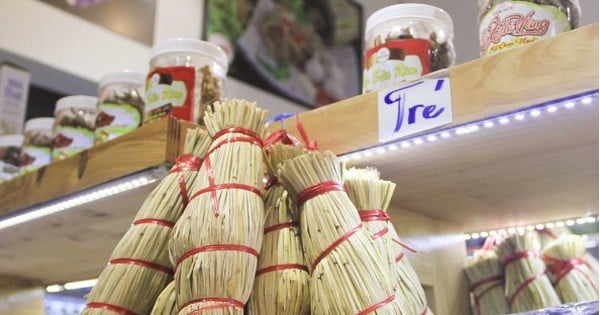
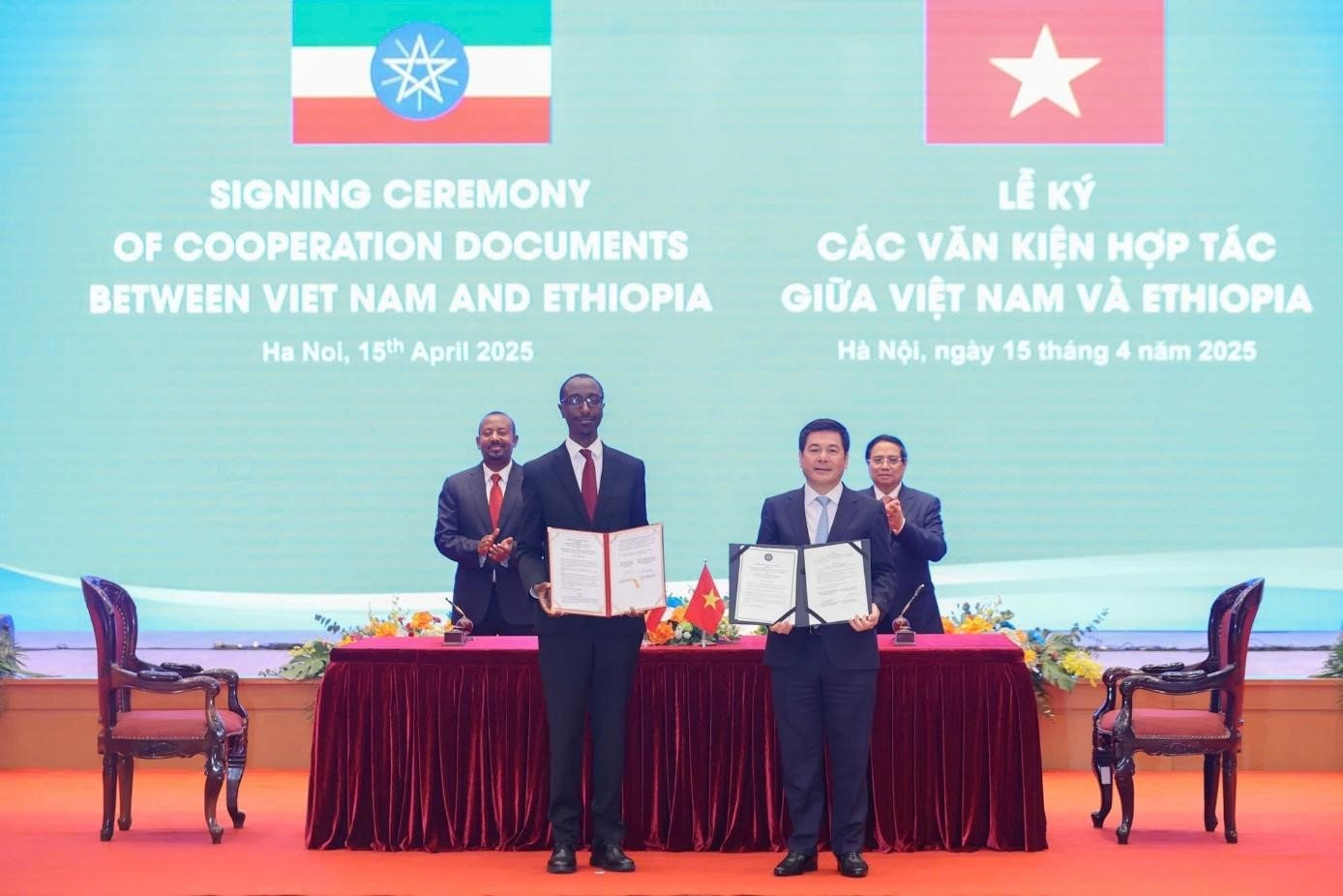

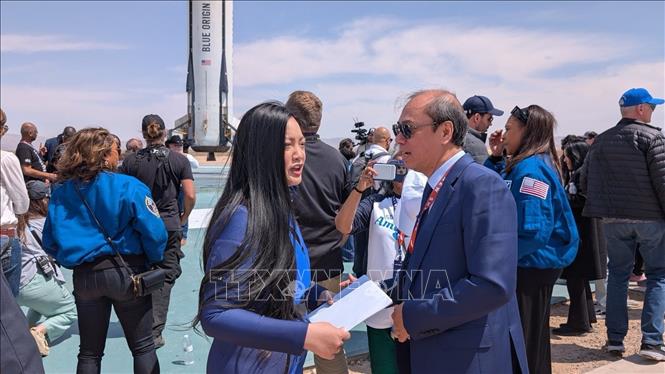

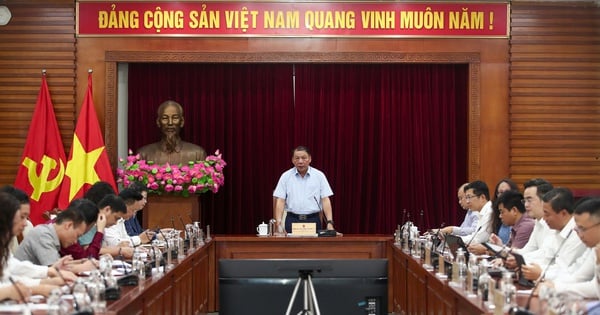
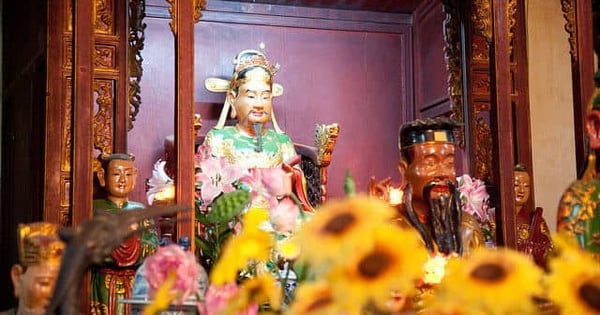
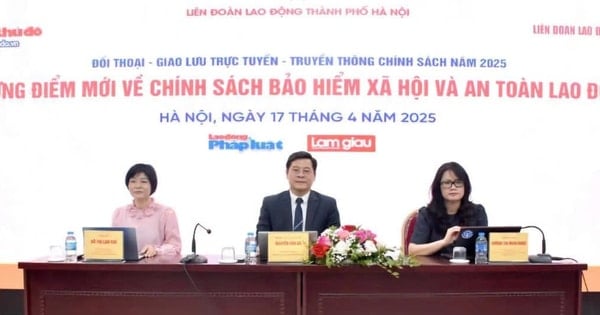



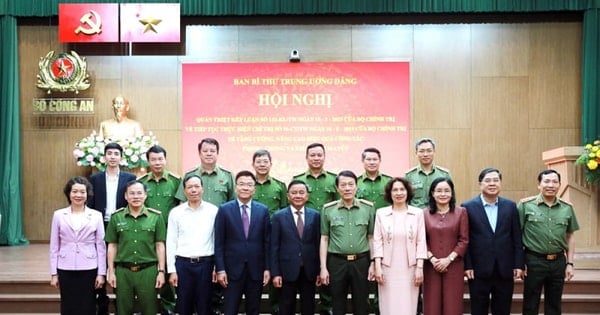
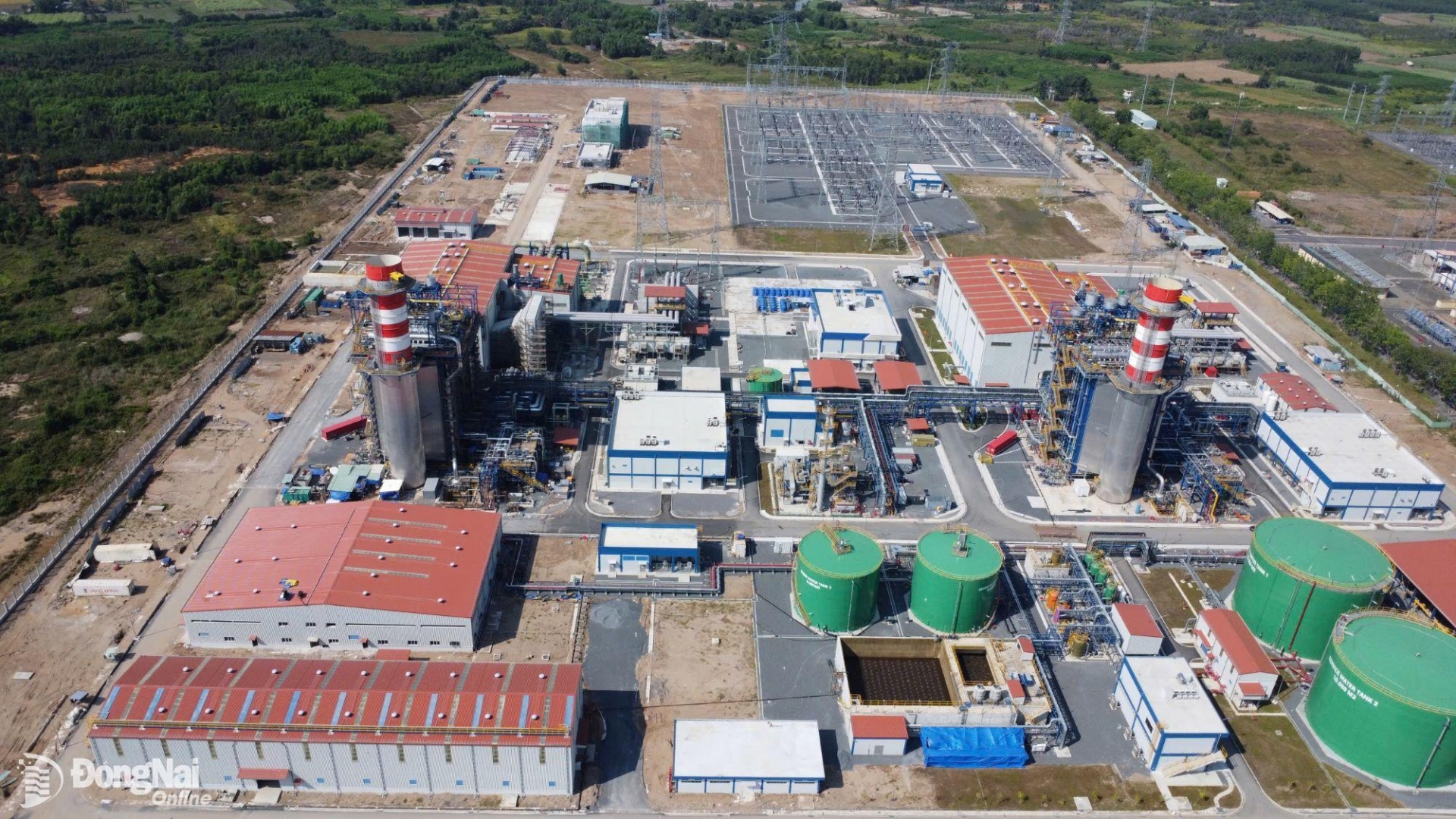

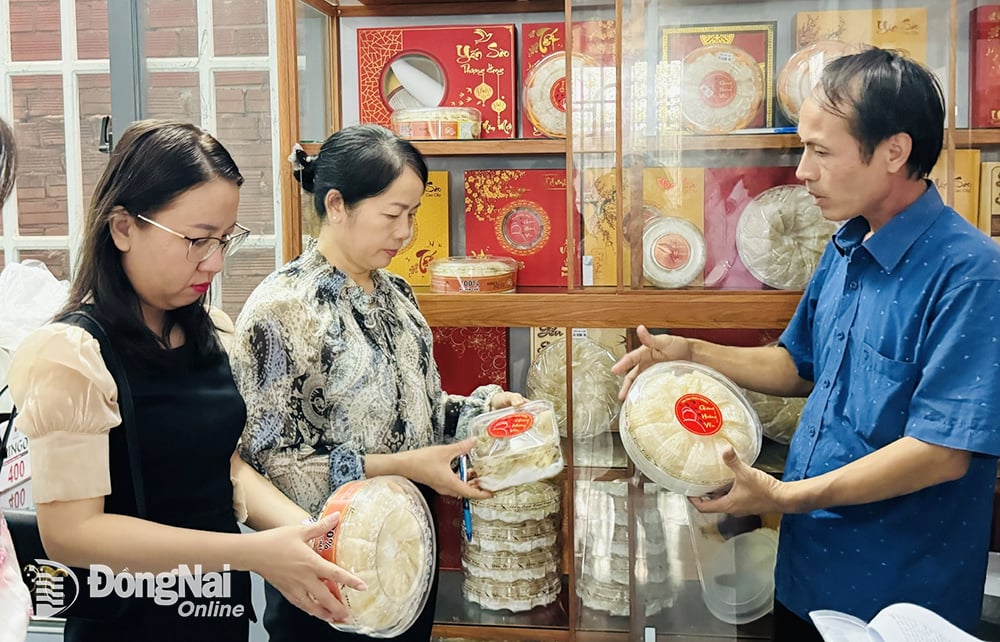
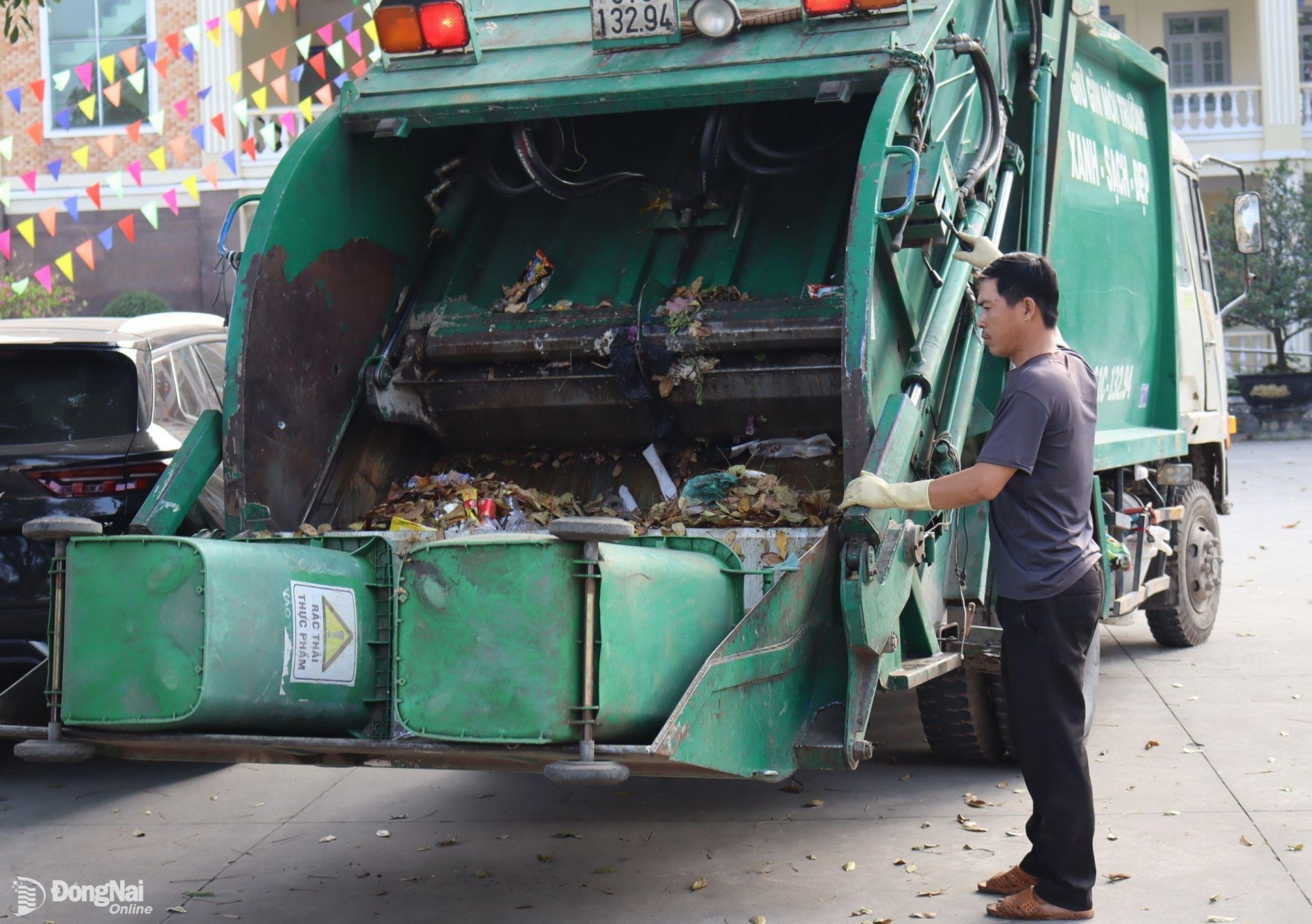










Comment (0)